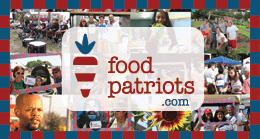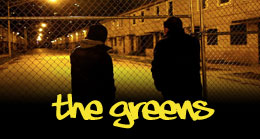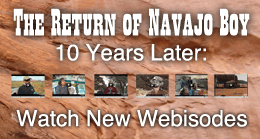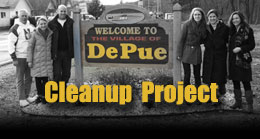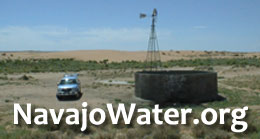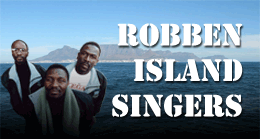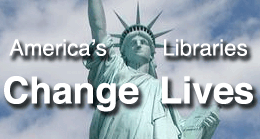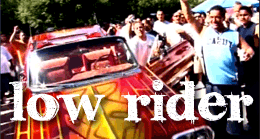Published: November 18, 2018
In preparation for the 20th Doc Talk show, “Music, Movies, Magic”, Jeff Spitz sat down with the show’s Associate Producer Sarah Schreib to discuss this month’s lineup, the Doc Talk community, and the magic of documentary.
The following interview has been edited for clarity and length.
Sarah Schreib: First, how did you narrow in on the concept of “Music, Movies, Magic” for this show?
Jeff Spitz: Every month I’m looking for work that is timely but timeless. I’m looking for things that resonate widely, starting with my own reaction.
Music is in most documentaries now. If you don’t have a documentary with some kind of music or magic, you have a boring film. I think filmmakers in documentary now are aiming to create a magical experience, even with reality. And they use music to persuade and to soothe and to drive juxtapositions.
Music is essential in storytelling on the screen. It has been for a long time, but it predates the movie invention and it, like magic, is essentially a human and fundamental talent. Doing a show with just that theme – “Music, Movies, Magic” – gives filmmakers a chance to talk about that interplay, and I think that interplay is just what everyone is looking for in their work, and it pulls people together into community.
SS: Do you see a difference in the use of music in nonfiction films versus fiction films?
JS: Usually the music in a fiction film would be much more over the top. And in documentary it will have to be pulled back and be less insistent. I love the fact that documentaries are often times about music and musicians, but even ones that are investigative journalism know that music is going to help move the pace of the story, and emphasize certain characters, themes, and locations, and, most importantly, the tone.
I know that musicians, when they work with documentary filmmakers, they aren’t aiming low, they’re aiming high. They want their themes to resonate, and they have to be tied to something. They’re usually tied to the largest theme of the film, but also to emotional moments in the film, and they help underscore both.
SS: Was there a documentary that you came to first when curating this show?
JS: The first thing that I wanted to do was call Arlen Parsa, who was a fantastic student at Columbia College and has become an amazing talent in documentary, web design, and even civic engagement with his monthly investigative reports.
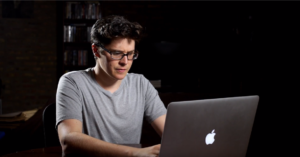
Arlen Parsa: Way to Andina
Arlen’s an amazingly talented guy but he showed that beyond a shadow of a doubt by excavating his grandpa’s lost opera and then deciding, ‘Hey what should I do with this? I don’t know anything about opera but it would be cool to hear it!’ So Arlen was first. Thinking about The Way to Andina, and what he went through to make that film, was the first thing that attracted me about this topic.
SS: Is this typically how you approach curating a show?
JS: I have to know that something is already there that I can work with. Because I’ve been doing this now – this is show twenty – a lot of people have sent me stuff or told me about stuff. I’ve been able to see a lot of different things and figure out how to organize around them and then ask for similar but different, only linked loosely by themes. I don’t want two of the same. I want four to six, sometimes up to eight, very unusual, different points of view.
SS: Focusing on the magic aspect of the show, A Magical Vision is the only film that focuses explicitly on magic. It also brings a very human, very high stakes discussion to the world of magic and awe and transformation – “Is a life without mystery worth living?” Why was it important for you to include this film in the lineup?
JS: I saw Michael’s work in magic – Michael Caplan is a colleague of mine at Columbia College – he made this unusual film about a magician and magic and spirituality and intellect and I was not able to see the whole thing. I’ve only seen the trailer. I thought it was really intriguing that he’s attempting a different way into the topic.
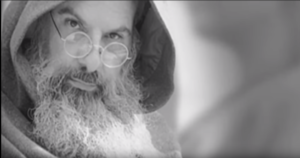
Michael Caplan: A Magical Vision
Michael chose this person [Eugene Burger, the subject of the film] who he’s very close to, and was interested in things that people don’t usually talk about when they’re making a film about magic. Usually its spectacle, tricks, biography. This is a really interesting exploration of a mystical and spiritual and intellectual aspect that predates the medium, and goes back to the roots of human kind. I thought that even if there is only one film this session about magic, it needs to be this one.
SS: Where else do you see magic in the other films?
JS: I guess I see magic in each one of these movies, and it’s partly through the music. In David Weathersby’s films, there’s a kind of magic in the secrecy of the Debauchery Ball. There’s something to the history, the secrecy, the BDSM elements, the house music, that creates a sort of magic space. I think that’s his skill, that’s a filmmaker’s passion for that environment, and the people, and that music. And he created a magical trailer that castes a spell on you and makes you say, ‘Damn I would really like to be in that room.’

David Weathersby: Thee Debauchery Ball
In Cam Be’s film, Where Flowers Bloom, it’s about “black girl magic.” The subject is an African American female rapper. She’s surrounded by men and she is very unusual, so the magic is in collaboration and in the way Cam Be uses black and white cinematography to create a mood.
Arlen’s film I’ve already discussed but I think what he’s done is really kind of magical. He’s conjured his grandpa’s voice, but also a whole history of immigration.
The film about festivals, it’s called Festival: The Documentary. I think the magic in that is that they are attracting tens of thousands if not hundreds of thousands of people to spend hundreds of dollars and immerse themselves in a total weekend experience with as many strangers as they can rub up against and as much music as they can digest and all the other things that come with that strange and adventurous journey.
I guess what’s magical about that is there are people who are investing a lot of themselves in the hope of a transformative experience. And the film raises questions about that: Is this just sort of a form of exploitation by business men figuring that young people need a safe environment for the weekend because they’re homebound the rest of the time playing video games in a violent world where you can’t trust strangers? Here’s the one time when it seems like you can be safe and trust strangers, take a chance, get high without getting arrested…They are trying to create magical environments for money. And they’re good at it.
Mallory’s: Walk All Night is about the bucket boys in Chicago going to Africa. I think what’s magical about that film is that these kids tend to appear on our street corners, they tend to appear after big events, anywhere there’s a big crowd. We don’t know who they are, they just bang out the rhythm on these white buckets and we look at them and maybe throw a buck in the bucket. But they have a journey in this film that is truly incredible.

Mallory Sohmer: Walk All Night
The magic here is that they take Chicago with them and they come back with an African point of view: an African philosophy, African understandings, that they had no idea existed. And it will enrich their identities and their music for the rest of their lives. I think the vision to do something like that is kind of magical, the ability to make a film and follow along and make relationships with people so that they are open and vulnerable with you is always kind of a magical part of documentary.
SS: Another film that really stands out is the La La Land One Take cover video – it has music but doesn’t follow what you think of as traditional elements for a nonfiction film. Why did you choose to include it in this lineup?
JS: La La Land One Take is a must see for anyone who loves music and documentary and believes that magic is possible in our field. This is a Chinese student’s summer project where he’s decided to take the opening number from La La Land and rewrite the lyrics so that it’s relevant to his old high school friends in China. And you have to see this because what he’s created is a kind of magic.

Rio Jiang: La La Land, One Take
These are people who are creatively treating actuality. It’s filmed in their high school, and one of the biggest things that high schoolers around the world dread is the big test, and in China I’m sure the stakes are even higher than in other places. So that’s the starting point, and where it goes is remarkable, but it comes back to that reality of the standardized test.
It’s completely creative, but you can’t look at that and say that it’s not real. You can’t look at it and say, ‘oh those are just actors.’ It is a kind of documentary musical. And afterwards the credits are all laid in over pictures of the making of this one take version of La La Land. So they’re very aware of the documentary nature of this endeavor while they’re making it, and they want people to know: ‘We really did this in our high school with real kids’.
SS: A lot of the films focus on the stories of musicians and performers and spectacle, but also on social issues — race, gender, sexuality. What do you think about Chicago as a city lending itself to not only being the setting for these types of stories, but also producing people who want to tell these stories?
JS: Chicago’s role in the Doc Talk Show is palpable, its ubiquitous, and its rooted in the reason we’re all getting together every month. We know our city is conducive, more than conducive, it nurtures documentary because of the rampant segregation and the raw nature of it here. We can stand downtown any day of the week and see black folks going south and mostly white folks going north and I think that wears on people, along with the violence.
Underneath the excitement of Chicago being of vibrant place is a pain that you’re here and you’re part of the problem and potentially part of the solution. And I think you’re always sort of aware of that difference. So I think it lends itself to films that are about reality. I think people who live here know that these problems that we all face are actual, you can’t hide from them.

Ben Hollis: Wild Chicago, John Vietnam
SS: Are there any audience reactions or Q&As that you are really looking forward to?
JS: I’m interested to hear Mallory talk about how she worked with the kids in the bucket boys. She’s a female filmmaker. She’s based here in Chicago. She’s white. She’s talked about bringing these kids overseas and filming them in Africa, and following them into some places that are extremely painful in the history of the African diaspora. I’m curious to hear how Mallory talks about her experience and what she learned from this and how she feels about being a white filmmaker in that position.
I’m also interested in hearing from David Weathersby about the Debauchery Ball and how he got access, permission. He’s filming people who seem like they are in their bliss, but that’s a secret location and this is a BDSM themed party. He didn’t seem to have to blur out anyone’s faces. The music is great, it looks like its accessible and that almost anyone would love this, but its black Chicago and I want to hear from a black filmmaker how he got access to that world and what he intends to do with this film.
Another one that I’m particularly curious about is Festival. I want to find out why this filmmaker wanted to look into the business of festivals and the personal stories of the people who attend these festivals. It does seem like they are diametrically opposed, it does seem like one will undercut the other. I want to watch the whole film and get the whole vibe that he’s going for.

Brandt Kado: Festival: The Documentary
I always love hearing audience’s reactions to Arlen’s film because they laugh. I love hearing the laughter. I laughed my ass off at his film but I also really felt moved by the deep dive that he was doing into his grandpa’s immigrant history and by the degree of difficulty in that film. He didn’t just make a film he made an opera too. I just could not have more respect for a filmmaker than I have for him. I’m always interested to hear his dialogue with audiences, especially when it starts with laughter. Arlen knew absolutely nothing about making an opera. Putting yourself on the line and in a movie is a high wire act.
SS: Do you also consider potential interactions between the different filmmakers?
JS: The mix and match of people is really exciting here in the Doc Talk Show and those filmmakers who are coming up to share a clip and something from their lives are my cast for the show. I want people who want to be there, have a lot to share, and love people, and really can speak from the heart. That’s all there is to it. So when I meet these different people and think about them coming into the same room, that’s electrifying. The anticipation is thrilling, and I’m on my 20th show because I enjoy it so much.
For this show I’m excited to think about the possibilities, let’s say, of the person who made Festival [Brent Kado] and David Weathersby, who filmed this secret venue where black people are dancing to house music dressed in BDSM culture, and they don’t want the place to be known. I’m interested in how those two filmmakers will interact with each other.
I’m interested to see how Arlen and his journey will vibe with Mallory and her journey. Arlen’s is so personal and hers is so self-abnegating. She has to be extremely low-key — yet assertive – to make a film like this. It’s not about her but she’s involved with a major journey.
I’m also interested to see how Cam Be relates to Mallory and her journey. He’s also worked in Rwanda. I don’t think they know each other but I think there’s synergy there.

Cam Be: Where Flowers Bloom
SS: Is there anything else that you hope the filmmakers and the audience keep in mind going into the show, or anything that you hope they take away from it?
JS: The other thing that prompted the theme this month is that this has been a tense period of time going into the election cycle and now coming out of it. I think we’re ready for a more celebratory, fun, lighter themed experience where we can look forward to music and magic and movies. These are things we all love and they do happen in a room. And all three of them independently are happening all the time, but we never get to think much about how they’re all woven together in a real space called community.
This is a real space in a real community where we get to enjoy all three things. So I’m hoping that it has a magical effect and attracts more people who haven’t gotten out and experienced the Doc Talk Show before.



